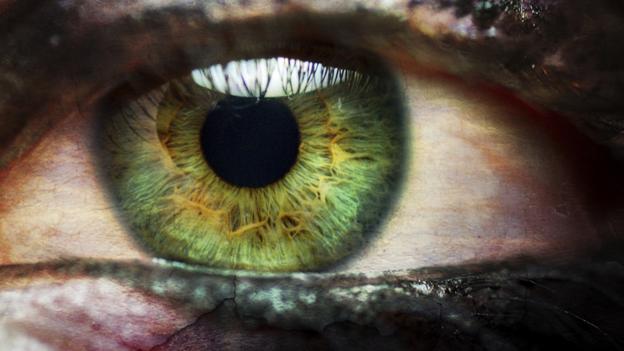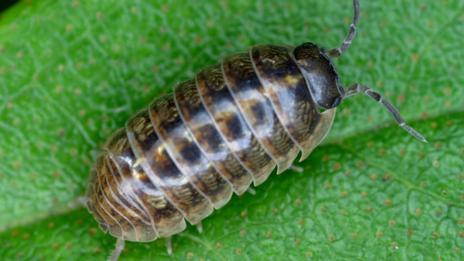
Why are some people extraordinarily selfish, manipulative, and unkind?
David Robson asks the scientist delving into the darkest sides of the
human mind.
Our internal body clock has such a dramatic impact on sporting ability that it could alter the chances of If you had the opportunity to feed harmless bugs into a coffee grinder, would you enjoy the experience? Even if the bugs had names, and you could hear their shells painfully crunching? And would you take a perverse pleasure from blasting an innocent bystander with an excruciating noise?
These are just some of the tests that Delroy Paulhus uses to understand the “dark personalities” around us. Essentially, he wants to answer a question we all may have asked: why do some people take pleasure in cruelty? Not just psychopaths and murderers – but school bullies, internet trolls and even apparently upstanding members of society such as politicians and policemen.
It is easy, he says, to make quick and simplistic assumptions about these people. “We have a tendency to use the halo or devil framing of individuals we meet – we want to simplify our world into good or bad people,” says Paulhus, who is based at the University of British Columbia in Canada. But while Paulhus doesn’t excuse cruelty, his approach has been more detached, like a zoologist studying poisonous insects – allowing him to build a “taxonomy”, as he calls it, of the different flavours of everyday evil.
Self-regard
Paulhus’s interest began with narcissists – the incredibly selfish and vain, who may lash out to protect their own sense of self-worth. Then, a little more than a decade ago, his grad student Kevin Williams suggested that they explore whether these self-absorbed tendencies are linked to two other unpleasant characteristics – Machiavellianism (the coolly manipulative) and psychopathy (callous insensitivity and immunity to the feelings of others). Together, they found that the three traits were largely independent, though they sometimes coincide, forming a “Dark Triad” – a triple whammy of nastiness.

Even so, since Paulhus tends to focus on everyday evil rather than criminal or psychiatric cases, the traits are by no means apparent on the first meeting. “They are managing in everyday society, so they have enough control not to get themselves into trouble. But it catches your attention here or there.” People who score particularly high on narcissism, for instance, quickly display their tendency to “over-claim” – one of the strategies that helps them boost their own egos. In some experiments, Paulhus presented them with a made up subject and they quickly confabulated to try to appear like they knew it all – only to get angry when he challenged them about it. “It strikes you that yes, this fits into a package that allows them to live with a distorted positive view of themselves.”
Born nasty
Once Paulhus had begun to open a window on these dark minds, others soon wanted to delve in to answer some basic questions about the human condition. Are people born nasty, for instance? Studies comparing identical and non-identical twins suggest a relatively large genetic component for both narcissism and psychopathy, though Machiavellianism seems to be more due to the environment – you may learn to manipulate from others. Whatever we’ve inherited cannot take away our personal responsibility, though. “I don’t think anyone is born with psychopathy genes and then nothing can be done about it,” says Minna Lyons at the University of Liverpool.

Whatever the truth of that theory, Paulhus agrees there will always be niches for these people to exploit. “Human society is so complex that there are different ways of enhancing your reproductive success – some involve being nice and some being nasty,” he says.
Dark corners
Recently, he has started probing even further into the darkest shadows of the psyche. “We were pushing the envelope, asking more extreme questions,” he says – when he found that some people will also readily admit to inflicting pain on others for no other reason than their own pleasure. Crucially, these tendencies are not simply a reflection of the narcissism, psychopathy or Machiavellianism, but seem to form their own sub-type – “everyday sadism”. For this reason, Paulhus now calls it a “dark tetrad”.
The “bug crushing machine” offered the perfect way for Paulhus and colleagues to test whether that reflected real life behaviour. Unknown to the participants, the coffee grinder had been adapted to give insects an escape route – but the machine still produced a devastating crushing sound to mimic their shells hitting the cogs. Some were so squeamish they refused to take part, while others took active enjoyment in the task. “They would be willing not just to do something nasty to bugs but to ask for more,” he says, “while others thought it was so gross they didn’t even want to be in the same room.” Crucially, those individuals also scored very highly on his test for everyday sadism.

Troll tracking
He thinks this is directly relevant to internet trolls. “They appear to be the internet version of everyday sadists because they spend time searching for people to hurt.” Sure enough, an anonymous survey of trollish commentators found that they scored highly on dark tetrad traits, but particularly the everyday sadism component – and enjoyment was their prime motivation. Indeed, the bug-crushing experiment suggested that everyday sadists may have more muted emotional responses to all kinds of pleasurable activities – so perhaps their random acts of cruelty are attempts to break through the emotional numbness.
More immediately, his discoveries have attracted the attention of police and military agencies, who want to collaborate with Paulhus to see if his insights might explain why some people abuse their positions. “The concern is that these people might deliberately select jobs where you are given the mandate to hurt individuals,” he says. If so, further work might suggest ways to screen out the dark personalities at recruitment.

All of which underlines the false dichotomy of good and evil that Paulhus has been keen to probe. In a sense, that is a personal as much as a professional question. He admits to seeing a dark streak in his own behaviour: for example, he enjoys watching violent, painful sports like Mixed Martial Arts. “It didn’t take long to see I would stand above average on these dark traits,” he says. “But given my abiding curiosity as a scientist and my enjoyment of investigating such things – I thought that perhaps I was in a good position to take a closer look at the dark side.
No comments:
Post a Comment